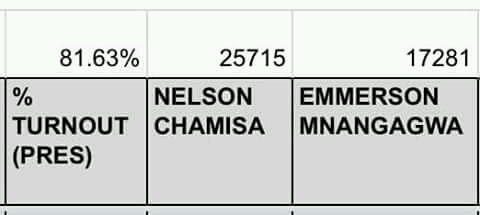Being a dictator is not easy. In addition to worrying about commanding an entire army, leading a cabinet of 40/50 odd ministers, making decisions on the economy, international relations and ruling the country; you have to worry about making opposition members ‘disappear’, deciding which wine to drink with your caviar and whether to do Paris or Milan for your wife’s next shopping trip. Of course all these things come with the territory. As a dictator you will quickly find that for you to stay in power there is one skill that is an absolute must have if you are to last in this business, and this is how to steal erm… win an election.
One must never feel guilty for resorting to this method of letting the people ‘express their will’. Think of it this way: Superman flies, Spiderman spins webs, Batman fights, Hulk has unlimited strength, rapid tissue regeneration powers, and inexhaustible stamina and you can rig… oops sorry hold elections to affirm the people’s unwavering support of your policies.
Firstly, you need to secure the media and by secure I mean literally. If you can find all the media people in your country and tie them up somewhere that would be ideal. For those you can’t tie up gentle persuasion is advised. Since you control the media already, if you’re the incumbent, the former wouldn’t be necessary because the latter would be easier.
Starve the opposition of airtime on the mass media so that for most of your voters the very first time they even hear about the other candidates is in the voting booth. With your name the only one in their sub conscience in the run up to elections, it’s obvious who they will choose.
The advent of social media has resulted in many people relying on their phones for news. Social media is a beast whose power you must never underestimate. You could in theory use the police force (change their name to the police service if you can as it sounds nicer) to round up all the phone devices in your country but that wouldn’t be very subtle. It is very likely that someone might notice. Instead, your best bet is to persuade the telecommunication regulator in your country to persuade the cellphone networks to disrupt services before, during and after elections. I am sure you noticed the repetition of the word persuade here you know what that means right? Good! If you’ve been doing your job well enough you should only have one network provider. If any Human Rights groups question this, citing free speech violations, feign ignorance for two or three days and ask them how they found out about this if the internet is not working then drop the mic and walk away! Bear in mind this does not always work. People are more intelligent and very resistant to authority nowadays. They just don’t make them like they used to. If you are in this situation sadly you might have to arrest a few, at least until you are ‘duly elected’ in a free and fair election which brings me to the next point.

You’ve heard it said that too much of a good thing can be bad? Well, when it comes to ballot papers with an X next to your name that isn’t the case. Believe it or not people win elections by getting other people, usually more than everyone else, to put an ‘X’ next to their name on a ballot paper. Extra ballot papers are inexpensive to print as they are part of the election budget. No-one will be surprised by their presence so they are the one paper that is worth their weight in gold unlike your currency but stay with me. Just don’t end up winning by 100% or something crazy like that. Unlike scripted TV you want to make it look like it was a competition from the get go. This will make it look like you genuinely won. This is important and you’ll find out why after this last point.
To aid the facade of your honest victory resist the urge to use violence… at least on camera. When the results are declared, act surprised but state you were always very confident that the people would vote for you. You must add that the will of the people has prevailed and focus should now shift to bettering the country as a whole regardless of political affiliation. And oh… don’t forget to turn the internet back on!



